Coordinators
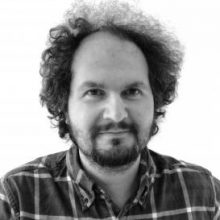
Roberto Lalli
PI – Coordinator Research Unit Politecnico di Torino
Roberto Lalli is an Assistant Professor in the History of Science and Technology at Politecnico di Torino and a Visiting Scholar at the Max Planck Institute for Geoanthropology. He holds an MSc in Physics from the University of Milan (2006) and a PhD in International History from the same institution (2011), where he worked on comparative analyses of national receptions of modern physical theories. He was a postdoctoral fellowship in the History of Modern Physical Sciences at MIT’s Program in Science, Technology, and Society. From 2013 to 2022, he was a Research Scholar at the Max Planck Institute for the History of Science. He has also been a Visiting Lecturer at the Technical University of Berlin and has held research fellowships at institutions such as the Van Leer Jerusalem Institute, the University of Milan, Caltech, and the AIP Center for the History of Physics. His research focuses on the history of modern physics, international scientific cooperation, and science diplomacy. His publications include a monograph on the history of collaboration in general relativity (Springer), two edited volumes (Birkhäuser and Oxford University Press), and two special issues in peer-reviewed journals (Centaurus and EPJH).
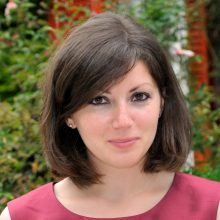
Giulia Bentivoglio
Co-PI Coordinator Research Unit University of Padua
Giulia Bentivoglio
is Associate Professor at the Department of Political Sciences, Law and International Studies of the University of Padua, where she teaches History of International Relations and Transatlantic Relations after 1945. She was Visiting fellow at the London School of Economics and Political Sciences, IDEAS centre, London (2013) and Visiting scholar at the Universität Mannheim (2016). She held lessons and seminars in universities across Europe (Italy, the United Kingdom, Denmark, Hungary, Ireland, Austria, Spain). She was also a participant to the project for the Publication of Italian Diplomatic Documents of the Ministry of Foreign Affairs. In 2012 she received the Gerald Ford Foundation grant. Her research interests lay in the fields of History of the Cold War History, History of European Integration, History of technical-scientific multilateral diplomacy, Transatlantic studies. Among her main publications: “The two sick men of Europe? Britain and Italy between crisis and renaissance (1976-1983)”, PIE-Peter Lang, 2018; “La relazione necessaria. La Gran Bretagna del Governo Heath e gli Stati Uniti (1970-74)”, FrancoAngeli, 2011; and, with A. Varsori (eds.), “Realtà e immagine della politica estera italiana dal centro-sinistra al pentapartito”, FrancoAngeli, 2017.
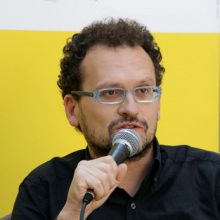
Luca Guzzardi
Coordinator Research Unit University of Milan
Luca Guzzardi is an Associate Professor of Philosophy of Science at the University of Milan, where [they] have been teaching since 2015. [They] earned both [their] degree (2000) and PhD (2004) from this university. His academic journey includes a DAAD fellowship at the Deutsches Museum in Munich, work on the National Edition of the Works and Correspondence of Ruggiero G. Boscovich at the Observatory of Brera in Milan, and a postdoctoral position at the Department of Physics, University of Pavia. Prof. Guzzardi’s primary research interests lie in the History and Philosophy of Science, with a particular emphasis on the structural aspects of the scientific enterprise. Beginning with his PhD thesis, He have explored Ernst Mach’s philosophy and the role of description in the physical sciences, later extending this inquiry to include Heinrich Hertz’s work. He is also occasionally drawn to comparative studies between science and literature, motivated by a lifelong curiosity and love for poetry and novels. In 2020, Prof. Guzzardi published a book on Ruggiero Boscovich’s science, Ruggiero Boscovich’s Theory of Natural Philosophy. Points, Distances, Determinations(Birkhäuser, 2020). His current research focuses on the concept of epistemic constraints—factors that shape what can or cannot be known—and their implications for scientific collaboration. In this context, he is developing the notion of “epistemically constrained collaboration,” a mode of research driven by epistemic necessities rather than competition or other motivations. His broader research examines the concept of shared discovery, with particular attention to cases where collaboration takes precedence over competition and resistance to new findings is minimal.
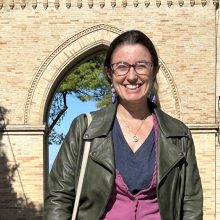
Adele La Rana
Coordinator Research Unit University of Macerata
Sub-units directors
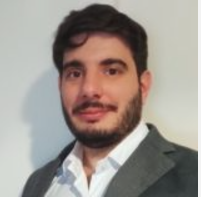
Francesco Nicoli
Director sub-unit on public acceptance at Politecnico di Torino
Francesco Nicoli is assistant professor of political science at the Politecnico Institute of Turin. He also serves as professor of political economy at Gent University and he is affiliate fellow at the department of economics of the University of Amsterdam as well as non-resident fellow at Bruegel. He holds a PhD in political economy, and his research focuses on the role of long-term, fundamental socioeconomic challenges (such as technological change and globalization) in shaping processes of integration at European and international level. His work has appeared on leading scientific outlets such as the Journal of European Public Policy (JEPP), the Journal of Common Market Studies (JCMS), Economic Policy, European Union Politics, the European Journal of Political Economy, Policy and Society, the European Journal of Public Health, Comparative European Politics, and others. He specializes in experimental survey research, econometric analysis, counter-factual methods, as well as a range of theory-based approaches. Within FusEurope, prof. Nicoli is responsible for the quantitative analysis of public opinion to be conducted through survey experiments.
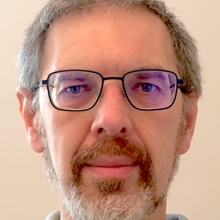
Marco Torchiano
Director of sub-unit on network visualization at Politecnico di Torino
Marco Torchiano is full professor of Software Engineering at the Control and Computer Engineering Dept. of Politecnico di Torino, Italy; he has been post-doctoral research fellow at Norwegian University of Science and Technology (NTNU), Norway. He received an MSc and a PhD in Computer Engineering from Politecnico di Torino. He is Senior Member of the IEEE, member of the software engineering committee of UNINFO (part of ISO/IEC JTC 1), faculty fellow of the Nexa Center on Internet & Society. He is author or co-author of over 180 research papers published in international journals and conferences, of the book ‘Software Development—Case studies in Java’ from Addison-Wesley, and co-editor of the book ‘Developing Services for the Wireless Internet’ from Springer. He has been a visiting professor at Polytechnique Montréal studying software energy consumption. His current research interests are: UI testing methods, open-data quality, and software modeling notations. The methodological approach he adopts is that of empirical software engineering. Within FusEurope, prof. Torchiano is responsible for the interactive visualization of social networks.
Post-doc members
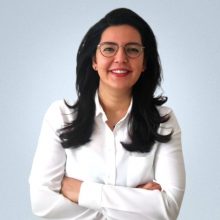
Merve Butorac
Post-doc member
Merve Butorac (née Biten) is a postdoctoral researcher at the Department of Management and Production Engineering (DIGEP) at Politecnico di Torino and a visiting scholar at the Autonomous University of Barcelona (UAB), where she is part of the TransDeM research group. She earned her PhD in Political Science from the University of Amsterdam. Her research focuses on the intersection of European governance, public opinion, and economic policies, with a particular emphasis on how austerity measures influence political trust in European Union (EU) institutions. She employs advanced quantitative methods, including multilevel modeling, combining survey data with macroeconomic indicators to explore the socio-political impacts of European economic governance. Within FusEurope, dr. Butorac works on survey design and on the quantitative analysis of the survey results.
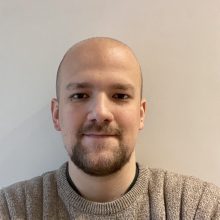
Giorgio Matteoli
Post-doc member
Giorgio Matteoli is post-doc research fellow at DIMEAS (Department of Mechanical and Aerospace Engineering), Politecnicodi Torino. His research focuses on the politics of historiographical practices pertaining to the sciences in the early-modern and modern period and on the quantitative analysis of institutional-scientific networks. He collaborates with the SYRTE lab (Systèmes de Référence Temps Espace) of the Paris Astronomical Observatory (Université PSL, CNRS, Sorbonne Université) and with the DR2 group (Distant Reading and Data Driven Research in the History of Philosophy) at the University of Turin.
Other members
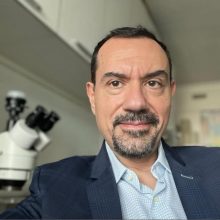
Federico Buonanno
Member
Federico Buonanno is a Full Professor of Zoology at the University of Macerata, where he is part of the Department of Education, Cultural Heritage, and Tourism, within the Environment and Territory section. He obtained hisdegree in Natural Sciences in 2000 from the University of Camerino, followed by a Ph.D. in Environmental Sciences and Public Health in 2004 from the same institution. He joined the University of Macerata as an Assistant Professor of Zoology in 2006, became Associate Professor in 2018, and was promoted to Full Professor in 2020. Currently, he is also president of the Italian Society of Protistology (SIP ETS).include predator-prey interactions in ciliated protozoa and the role of secondary metabolites in these interactions, adaptive strategies and toxicology in protists, particularly the effects of protozoan bioactive molecules on different biological systems. He is also involved in exploring the use of protists as model organisms for biology education. Buonanno is the author of 38 full-length original articles published in Web of Science-ranked journals, including Scientific Reports(Nature Publishing Group), Cell Death and Disease(Nature Publishing Group), Pharmacological Research, European Journal of Protistology, Journal of Eukaryotic Microbiology, Toxins, and Frontiers in Chemistry. He has also authored five invited reviews and chapters in books.
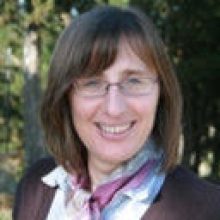
Lucia Coppolaro
Member
Lucia Coppolaro holds a Phd in international history from the European University Institute (Italy) and is associate professor of international history at the University of Padova (Italy). Her research interests lie in the fields of international economic institutions and international trade. She has published numerous articles on theEuropean Union, trade policy and international trade in journals including Contemporary European History and The International History Review.
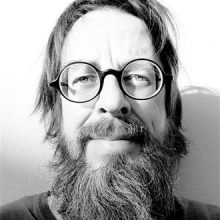
Walter Franco
Member
Walter Franco is a Full Professor in Applied Mechanics at the Department of Mechanicaland Aerospace Engineering –Politecnico di Torino, Italy. He is a lecturer in Mechanics for Design, Humanitarian Engineering, Technologies for Sustainable Development and Automatic Machines Mechanics. He is member of the academic board of the Mechanical Engineering PhD at Politecnico di Torino, and of the national PhD in peace studies of the Università di Roma-La Sapienza. His current main research fields are Appropriate and Intermediate Devices and Machines and History of Mechanisms and Machines. Walter Franco is author of more than one hundred papers published in national and international journals and conference proceedings. He is a member of IFToMM Italy (International Federation for the Promotion of Mechanism and Machine Science) and takes part of Technical Committees for Biomechanical Engineering and for Sustainable Energy Systems of IFToMM. He is also member of the Permanent Commission for History of Mechanism and Machine Science of IFToMM and of the Cross-Disciplinary Group “Securing our Future Environment –Air, Water, Energy” of IFToMM. He is also a member of the International Human Powered Vehicle Association IHPVA, and he is part of the scientific committee and management council of the Museo dell’Agricoltura del Piemonte. Walter Franco has promoted, organized, or presented as invited speaker at more than forty public events, particularly regarding the role of appropriate technologies in the social, environmental, and economic sustainability of marginalized or in socio-ecological transition communities.
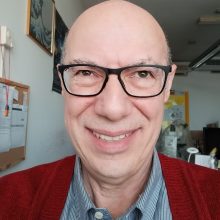
Claudio Ortenzi
Member
Claudio Ortenzi is a Full Professor of Zoology at the University of Macerata since 2008, where he is a member of the Department of Education, Cultural Heritage, and Tourism . In 1989 became an Assistant Professor of Zoology at the University of Camerino. In 2000, he joined the University of Macerata as an Associate Professor of Evolutionary Biology and Biology Teaching before attaining his current role. He was director of the specialization school for secondary teachers at the University of Macerata (2003-2009), and chair of the degree course in Education Sciences for Primary School Teachers at the University of Macerata, Department of Education, Cultural Heritage and Tourism (2003-2015). He was vice rector of the University of Macerata (2016 –2021). Major research interests of prof. Claudio Ortenzi are: speciation, ageing, cell-cell interactions in ciliated protists, isolation of bioactive molecules from protists. Prof. Ortenzi is author of a number of articles published on WoS-ranked journals, such as J. Cell Biol., Dev. Genet., J. Mol. Biol., Protein Science, PNAS, Mol. Biol. Cell, FEBS Letters Curr Pharm Des., Scientific Reports, GENE, Scientific Reports, Pharmacological Research, European Journal of Protistology, Journal of Eukaryotic Microbiology, Toxins, Frontiers in Chemistry.
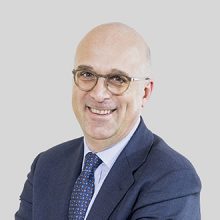
Stefano Sacchi
Member
Stefano Sacchi is professor of Political Science in the Department of Management and Production Engineering at the Polytechnic University of Turin, where he acts as vice-rector. He also coordinates the research center Theseus -Technology, Society and Humanity. His research interests include the political economy of labour and welfare, and the socioeconomic and political impact of technological change. Before joining the Politecnico di Torino, he taught at the University of Milan and LUISS Guido Carli in Rome and was Luigi Einaudi Chair scholar at Cornell University, NordWel scholar at Syddansk Universitet, visiting scholar at UC Berkeley and University of Washington. Between 2014 and 2016 he was an advisor to the Minister of Labour and Social Policy and the Prime Minister’sOffice of Italy. Between 2016 and 2020, he was President of Italy’s National Institute for Public Policy Analysis (INAPP).
Collaborators
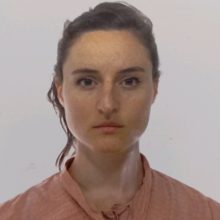
Mila Casali
Collaborator
Mila Casali holds a Master’s degree in Cultural Anthropology and Ethnology from the University of Turin, after completing a Bachelor’s degree in Philosophy and a three-year Master’s in Systemic Socio-Constructivist Counseling in Milan. Her main research interests include the human-environment relationship, with a particular focus on the current ecological crisis, and the development of inclusive contexts aimed at overcoming disabilities. She is an active member of the Association Alekoslab, an organization that promotes ecological initiatives and social inclusion at the Granara ecological village. In her academic research and professional experience, particularly in market research, she has been involved in data collection and the compilation of databases and datasets.
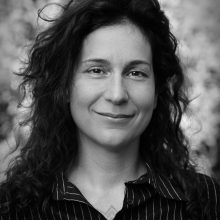
Barbara Hof
Collaborator
Dr. Barbara Hof is a postdoctoral researcher at the University of Lausanne, Switzerland, and a guest lecturer in the history of computing at the Leuphana University Lüneburg, Germany. She also serves as a managing editor of On_Education and a book reviews editor of Centaurus. She obtained her PhD in 2021 from the Faculty of Humanities and Social Sciences at the University of Zurich, Switzerland. She is currently preparing her first book, which explores the exchange of nuclear knowledge during the Cold War, and is developing a new study on the history of international data exchange in physics. She is also finalizing research on the early years of plasma physics and fusion science in Europe. Previously, she has conducted studies on the history of educational technology, constructivism, cybernetics, and artificial intelligence. In 2023, she was a guest researcher at the THESEUS Centre in Turin, Italy and in 2021, she was a guest researcher at the Leuphana University Lüneburg, Germany. From 2019 to 2023, she was an affiliated researcher on a project exploring the history of educational media.
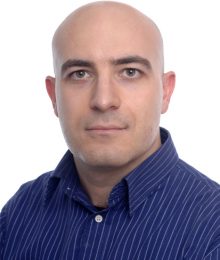
Stefano Salvia
Collaborator
Stefano Salvia graduated in Philosophy at the University and the ScuolaNormale Superiore of Pisa (2004), PhD in History of Science at the same University (2009), he joined as junior scholar the international research network History of Scientific Objects(2006-2010), coordinated by the Max Planck Institute for History of Science, Berlin. From 2010 to 2016, he was visiting scholar at the Center for History of Science –Royal Swedish Academy of Sciences, Stockholm. Currently, he is research assistant in History and Philosophy of Science at the Department of Civilizations and Forms of Knowledge, University of Pisa, and collaborator of the Galileo Museum in Florence. He is also teaching assistant in History of Science and Technology at the Department of Mechanical and Aerospace Engineering, Politecnico di Torino. His research interests range from early modern science to contemporary HPST, from science teaching and communication to STS-oriented theoretical and applied museology.